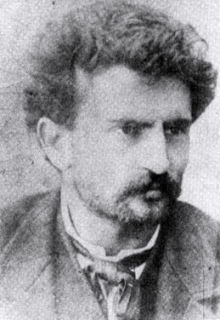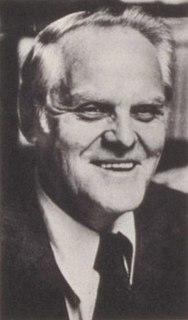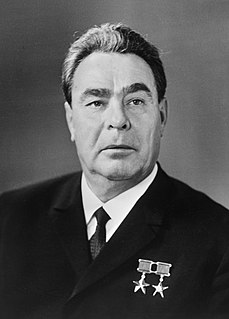A Quote by Daniel Guerin
Anarchism is really a synonym for socialism. The anarchist is primarily a socialist whose aim is to abolish the exploitation of man by man. Anarchism is only one of the streams of socialist thought, that stream whose main components are concern for liberty and haste to abolish the State.
Related Quotes
Odonianism is anarchism. Not the bomb-in-the-pocket stuff, which is terrorism, whatever name it tries to dignify itself with, not the social-Darwinist economic 'libertarianism' of the far right; but anarchism, as prefigured in early Taoist thought, and expounded by Shelley and Kropotkin, Goldman and Goodman. Anarchism's principal target is the authoritarian State (capitalist or socialist); its principle moral-practical theme is cooperation (solidarity, mutual aid). It is the most idealistic, and to me the most interesting, of all political theories.
Anarchism is the abolition of exploitation and oppression of man by man, that is, the abolition of private property and government; Anarchism is the destruction of misery, of superstitions, of hatred. Therefore, every blow given to the institutions of private property and to the government, every exaltation of the conscience of man, every disruption of the present conditions, every lie unmasked, every part of human activity taken away from the control of the authorities, every augmentation of the spirit of solidarity and initiative, is a step towards Anarchism.
The idea of direct action against the evil that you want to overcome is a kind of common denominator for anarchist ideas and anarchist movements. I think one of the most important principles of anarchism is that you cannot separate means and ends. Anarchism requires means and ends to be in line with one another. I think this is in fact one of the distinguishing characteristics of anarchism.
The two principles referred to are Authority and Liberty, and the names of the two schools of Socialistic thought which fully and unreservedly represent one or the other of them are, respectively, State Socialism and Anarchism. Whoso knows what these two schools want and how they propose to get it understands the Socialistic movement. For, just as it has been said that there is no half-way house between Rome and Reason, so it may be said that there is no half-way house between State Socialism and Anarchism.
Anarchism is for liberty, and neither for nor against anything else. Anarchy is the mother of co-operation, yes, just as liberty is the mother of order; but, as a matter of definition, liberty is not order nor is Anarchism co-operation. I define Anarchism as the belief in the greatest amount of liberty compatible with equality of liberty; or, in other words, as the belief in every liberty except the liberty to invade.
There is absolute truth in anarchism and it is to be seen in its attitude to the sovereignty of the state and to every form of state absolutism. [...] The religious truth of anarchism consists in this, that power over man is bound up with sin and evil, that a state of perfection is a state where there is no power of man over man, that is to say, anarchy. The Kingdom of God is freedom and the absence of such power... the Kingdom of God is anarchy.
On the world scene, it is our position that there is a resurgence of socialism taking place. The world's socialist and Communist forces are now on the move to restore socialism in the former socialist countries and to strengthen the existing socialist countries... there is a new socialist world on the horizon, a resurgence of the world revolutionary process.
If we trace origins of anarchism in the United States, then probably Henry David Thoreau is the closest you can come to an early American anarchist. You do not really encounter anarchism until after the Civil War, when you have European anarchists, especially German anarchists, coming to the United States. They actually begin to organize. The first time that anarchism has an organized force and becomes publicly known in the United States is in Chicago at the time of Haymarket Affair.
The term anarchism has become associated with two phenomena with which real anarchist don't want to associate themselves with. One is violence, and the other is disorder or chaos. The popular conception of anarchism is on the one hand bomb-throwing and terrorism, and on the other hand no rules, no regulations, no discipline, everybody does what they want, confusion, etc. That is why there is a reluctance to use the term anarchism.
When external and internal forces hostile to the development of socialism try to turn the development of a given socialist country in the direction of the restoration of the capitalist system, when a threat arises to the cause of socialism in that country ... this is no longer merely a problem for that country's people, but a common problem, the concern of all socialist countries.






























